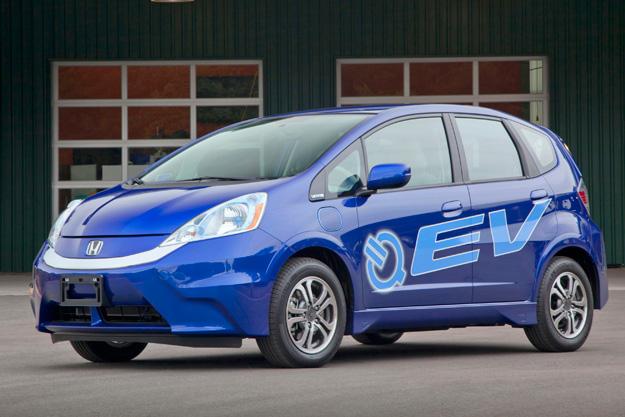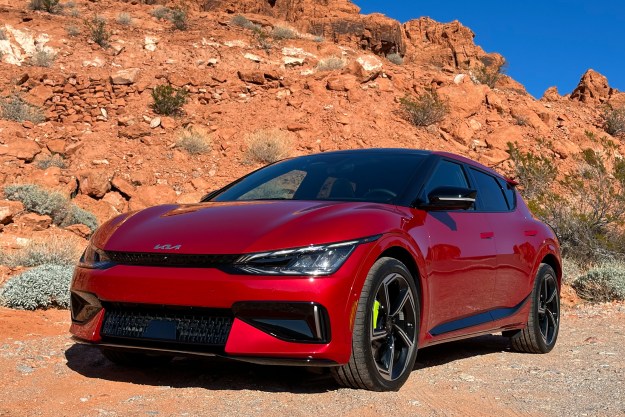
Honda will undoubtedly be pleased as its inaugural electric, the Fit EV, has been given a 118-mile-per-gallon equivalency rating (MPGe) by the Environmental Protection Agency, allowing the Japanese automaker to boast the highest MPGe of any electric passenger car to date.
Until now, the Mitsubishi i-MiEV sat on the MPGe throne, besting both the Ford Focus (105 MPGe) and the Nissan Leaf (99 MPGe) with a solid 112 EPA MPGe rating of its own. Not only has Honda managed to wrest the crown from Mitsubishi and company with its impressive 118 combined MPGe rating, but the Fit EV also boasts the highest range among its electric adversaries with a combined highway/city rating of 82 miles on a single charge of its 20-kWh lithium-ion battery. To add a little icing on top of the cake, the Fit EV’s battery can be recharged in less than three hours from a state of low charge when connected to a 240-volt level 2 system, according to Honda’s press release.
Of course it can’t just all be about the numbers, right? Consumers don’t want to jump behind the wheel of the automotive equivalent of a lobotomy, which is where Honda has taken the time to highlight the Fit EVs zippy drive experience. “Just as important as the industry-leading fuel-efficiency and fast recharging time, as a Honda, the 2013 Fit EV will be an absolute kick to drive,” said Steve Center, vice president of the American Honda Environmental Business Development Office.
The Fit EV’s 92 kilowatt (123 horsepower) coaxial electric motor generates 188 ft-lb of torque, and is mated to a chassis with a fully-independent suspension and a driver-selectable 3-mode electric drive system, which is similar in many ways to what is currently used in the company’s CR-Z Sport Hybrid.
With the Fit EV’s estimated annual fuel cost of $500, Honda says the 2013 Fit EV will provide the most bang for your electric buck. That’s assuming, of course, you live in Oregon or California, where the efficient electric will begin its “select market kickoff.” Now we’ve already reported on the possibility of the Fit EV likely being nothing more than a compliance car. And that seems to be the case now more than ever.
Honda will begin leasing the 2013 Fit EV this summer in select California and Oregon markets, with an east coast push expected sometime next year. Leasing for the car is said to start at $399 for qualified customers and feature a sticker price just over $36,000. But Honda isn’t just limiting the Fit EV’s availability. While it has yet to be confirmed, word on the street is Honda only plans on making 1,100 examples for the U.S. market.
It looks like the most fuel efficient car the EPA has ever tested will also be the hardest to get behind its wheel.
Editors' Recommendations
- The Maserati GranCabrio Folgore is one of the best-looking EVs yet
- Tesla faces new rival as a tech giant launches its first EV
- 2024 Chevrolet Equinox EV: price, release date, range, and more
- This couple just did something remarkable in an EV
- Bold style alone can’t muscle Chevy’s new Blazer EV to the head of its class


